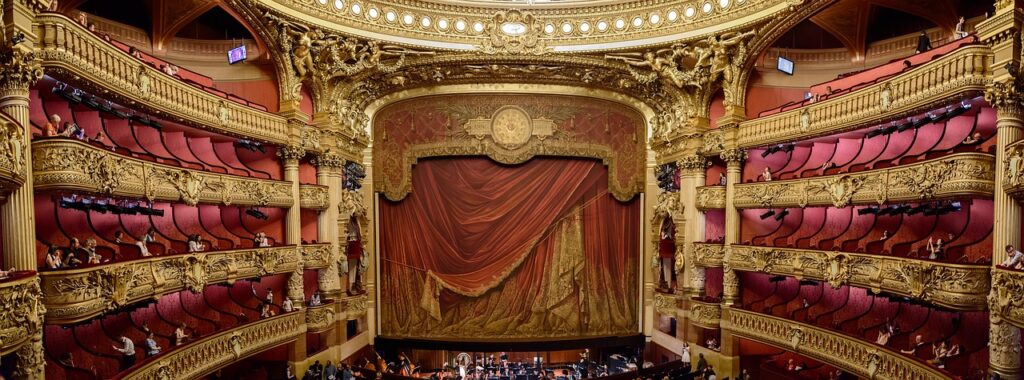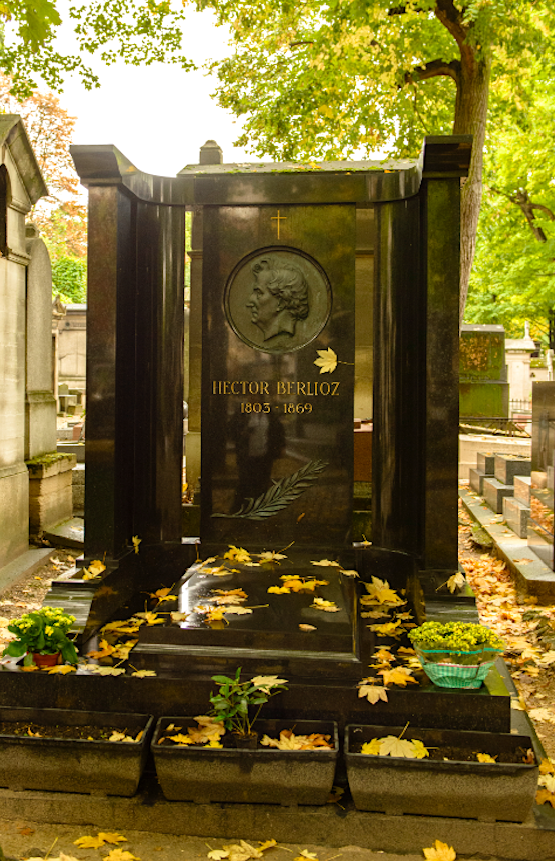
John Wilton Nelson, a distinguished American conductor renowned for his profound interpretations of Hector Berlioz and his expansive contributions to classical music across five decades, died on March 31, 2025, at his home in Chicago. He was 83. Nelson’s passing marks the end of a career characterized by meticulous artistry, a deep commitment to the scores he performed, and an unwavering dedication to re-evaluating and elevating the works of composers, particularly the often-misunderstood French romantic, Berlioz. His death was confirmed by his daughter, Kari Magdalena Chronopoulos, and by Alexandra Knight, head of Knight Classical, the music agency that represented him, though no cause was specified.
Nelson’s career was a testament to his conviction that a conductor’s primary allegiance lay with the composer, a philosophy he articulated in 2009: “My God is my composer. If I serve myself, or if I serve anything else other than the composer, I feel like I’m being dishonest as an artist.” This guiding principle informed his approach to a vast repertoire, from Baroque masterworks to contemporary sacred music, and profoundly shaped his enduring association with Berlioz. He championed the composer’s monumental works, bringing them to new audiences and securing them overdue recognition, particularly in France, where Berlioz had long been considered a “problem child” of the high romantic pantheon.
Across a career that traversed major concert halls and opera houses on both sides of the Atlantic, Nelson cultivated a reputation as a formidable interpreter, known for his ability to unearth the intricate details and grand architecture within complex scores. This article will explore twelve key facets of his remarkable life and career, beginning with his foundational experiences and early professional breakthroughs that set the stage for his extraordinary artistic journey.

1. **Early Life and Foundational Studies**John Wilton Nelson was born on December 6, 1941, in San José, the capital of Costa Rica, where his parents, Wilton and Thelma Nelson, served as American Protestant missionaries. His early childhood was marked by travel through the countryside with his family, often participating in a musical trio with his father and brother. At the age of six, after his family acquired a Steinway piano for $50, Nelson began piano lessons, laying the groundwork for his future in music.
His formal education continued in the United States, where he was sent at age 11 to attend a private school in Orlando, Florida. While he continued his piano studies, an accident in which he lost the tip of his right pinkie eventually led him away from the instrument and towards conducting. His Christian faith, nurtured by his missionary upbringing, remained a strong influence throughout his life, becoming deeply intertwined with his artistic endeavors.
Nelson pursued higher education at Wheaton College Conservatory of Music in Illinois, graduating in 1963 with a bachelor’s degree. He then advanced his studies at the prestigious Juilliard School in New York, where he trained under the renowned conductor Jean Morel. At Juilliard, he earned a master’s degree in choral and orchestral conducting in 1965 and was awarded the Irving Berlin Conducting Prize, signaling his early promise in the field.
Read more about: How to Safely Stop Tailgaters: 12 Expert Brake-Free Hacks for American Drivers

2. **The “Les Troyens” Revelation**While still a student at Juilliard, and subsequently during his early career directing the Greenwich Philharmonia in Connecticut and the New Jersey Pro Arte Chorale, Nelson was urged by his agent, Matthew Epstein, to undertake a significant project that would create a “splash in New York.” Epstein suggested Berlioz’s epic five-act opera, “Les Troyens” (“The Trojans”), a work that at the time was rarely performed in its entirety.
Nelson, then 28, took Epstein’s advice and immersed himself in a pioneering 1970 recording of the opera by British conductor Colin Davis. This listening experience proved transformative, with Nelson later describing it as “being struck by a thunderbolt” and noting that it “lit something up in me which has remained with me all my life.” He recognized Berlioz’s unique musical language, which he found “so different from anybody else’s,” and decided “to go for broke” with the challenging work.
In the spring of 1972, Nelson assembled the necessary forces, including the Pro Arte Chorale, to perform the opera in concert at Carnegie Hall. This landmark event marked one of the first full performances of “Les Troyens” in the United States, running from approximately 7 PM to midnight. The performance garnered widespread acclaim, with Harold C. Schonberg, then classical music critic for The New York Times, praising the “extraordinary vitality and understanding” Nelson brought to the score and noting that a “mighty roar went up” from the audience. Although a financial challenge for the Pro Arte Chorale, costing $50,000 to produce, the performance firmly established Nelson on the New York musical scene.

3. **Metropolitan Opera Debut and Ascending Career**Following the success of his “Les Troyens” performance at Carnegie Hall, John Nelson’s career rapidly gained momentum. Just a year later, in 1973, he received a pivotal call from the Metropolitan Opera. He was asked to step in at the last minute for the ailing director Rafael Kubelík to conduct a performance of the very same opera, Berlioz’s “Les Troyens,” for his professional opera conducting debut with the company. This unexpected opportunity provided a significant platform for the young conductor.
The performance at the Metropolitan Opera further cemented Nelson’s growing reputation. Peter G. Davis of The New York Times, in his review, observed that the young conductor “exercised real authority,” underscoring Nelson’s command over the demanding score and the orchestral forces. This debut marked a crucial turning point, positioning him as a rising star within the operatic world.
Within two years of his Met debut, a profile in The Times hailed Nelson as “the bright new hope” of the Metropolitan Opera staff. His early successes in New York established him as a conductor capable of handling complex and ambitious works, and his association with leading orchestras across the globe soon began to flourish, leading to a burgeoning international career that spanned decades and continents.

4. **Leadership at the Indianapolis Symphony Orchestra**In 1976, John Nelson assumed the role of music director for the Indianapolis Symphony Orchestra, a position he held for eleven years, until 1987. His tenure was marked by a period of significant growth and increased national visibility for the orchestra. Under his leadership, the Indianapolis Symphony Orchestra embarked on national tours, making notable stops at prestigious venues such as Carnegie Hall and the Kennedy Center, thereby elevating the ensemble’s profile.
During his time with the orchestra, Nelson also contributed to its discography. He made commercial recordings of music by American composers Ellen Taaffe Zwilich and Charles Martin Loeffler for New World Records. These recordings showcased his commitment to diverse repertoire and his ability to interpret both established and contemporary works, further distinguishing his directorship.
By 1987, after more than a decade of intense work and travel, Nelson experienced burnout, a sentiment he articulated in a Los Angeles Times interview. He famously recounted saying goodbye to the orchestra at the final stop of their first European tour in Nuremberg, after which he and his wife drove off “into the sunset — to Paris.” This decision marked a transition point, leading him toward new musical and personal horizons in Europe.

5. **Directorships in Opera and Festivals**Beyond his significant role with the Indianapolis Symphony Orchestra, John Nelson held prominent directorships with other esteemed American musical institutions, further showcasing his versatility and leadership in both operatic and festival settings. From 1985 to 1988, he served as the music director of Opera Theatre of Saint Louis, a company known for its innovative productions and commitment to fostering new talent. His work there contributed to the company’s artistic vibrancy.
Following his tenure as music director, Nelson remained deeply involved with the Opera Theatre of Saint Louis, transitioning to the role of principal conductor from 1988 to 1991. This extended association allowed him to continue shaping the company’s artistic direction and maintain a consistent presence in American opera, demonstrating his sustained impact on one of the nation’s respected opera festivals.
Concurrently with his operatic engagements, Nelson also served as music director of the Caramoor Festival in Katonah, New York, from 1983 to 1990. The Caramoor Festival, celebrated for its diverse programming in an idyllic setting, benefited from Nelson’s artistic guidance, which included a wide range of orchestral and chamber music. Although he resigned from Caramoor in 1989, these multiple directorships underscored his capacity to lead and inspire in varied musical environments, solidifying his reputation as a versatile and in-demand conductor.

6. **A Decade with Ensemble Orchestral de Paris**In 1998, John Nelson embarked on a new and significant chapter of his career by becoming the music director of the Ensemble Orchestral de Paris, an ensemble later renamed the Orchestre de chambre de Paris. This appointment marked a pivotal geographical and artistic shift, as Nelson, his wife, and their daughters relocated to France. He retained this influential position for a decade, profoundly impacting the orchestra’s artistic direction and reputation within the European classical music scene.
During his ten-year tenure with the Ensemble Orchestral de Paris, Nelson conducted a diverse repertoire, including a complete set of Beethoven’s symphonies. His work in Paris allowed him to further immerse himself in European musical culture and deepen his already significant connection with French composers, particularly Hector Berlioz. This period was instrumental in forging the strong ties with France that would become a hallmark of his later career and his Berlioz championing efforts.
This decade in Paris represented a period of sustained creative output and professional growth, enabling Nelson to conduct major orchestras and ensembles not only in France but also across the world. His leadership helped elevate the Ensemble Orchestral de Paris, providing a significant platform for his mature artistic vision and contributing to his eventual recognition as a key figure in the interpretation of French operatic and orchestral works, a role he would fully embrace in the years that followed.

7. **Unwavering Dedication to Berlioz’s Legacy**John Nelson’s profound artistic identity was inextricably linked to Hector Berlioz, a composer he not only championed but, in his own words, regarded as “my patron saint in music.” This dedication was a defining characteristic of his five-decade career, during which he relentlessly advocated for Berlioz’s often-misunderstood oeuvre, ultimately bringing the French romantic composer overdue recognition, particularly within his native France. Nelson’s approach was rooted in a conviction that many of his colleagues found Berlioz to be an “enigma and difficult to understand,” leading them to “back away from him,” yet for Nelson, the composer’s unique musical language resonated deeply.
Indeed, Berlioz had long occupied an anomalous position within the classical canon, often perceived as a “problem child” in the pantheon of high romantic composers. His works were frequently deemed “too bombastic, noisy and rule breaking for his French compatriots, and too quirky and unpredictable for adherents of a more restrained classical canon.” This perception was starkly illustrated when Nelson, astonished, learned that a suggestion to inaugurate Paris’s new Opera Bastille hall with “Les Troyens” was dismissed as “out of the question.” He observed in 2019 that, at the time, Berlioz “wasn’t particularly well respected” in France, finding him “just a little too far out for them.”
Yet, Nelson held an unshakeable belief in Berlioz’s genius, asserting that his language, “while very original, is completely natural” and that “Les Troyens” itself is “the masterpiece of French operatic repertoire.” He dedicated a lifetime to exploring and performing all of Berlioz’s music, stating, “My interpretation has matured to the point where every note in that piece is natural. For me it’s completely natural.” This deep immersion allowed him to present Berlioz with an authority and clarity that transformed perceptions, ultimately helping to ensure that the composer “begun to be recognized in France as one of their greatest.” This lifelong commitment stemmed directly from Nelson’s fundamental artistic philosophy: “My God is my composer. If I serve myself, or if I serve anything else other than the composer, I feel like I’m being dishonest as an artist.”
Read more about: David Rendall, 76, Renowned Tenor Whose Storied Career Was Marked by Unscripted Perils and Acclaim, Dies

8. **Acclaimed Berlioz Recordings**John Nelson’s unparalleled dedication to Berlioz yielded a discography that has become a touchstone for the composer’s interpreters and enthusiasts alike. Central to this legacy is his much-praised 2017 recording of “Les Troyens,” captured live in Strasbourg with the Orchestre Philharmonique de Strasbourg and a stellar cast including Joyce DiDonato, Michael Spyres, and Marie-Nicole Lemieux. This monumental achievement garnered widespread critical acclaim, earning Gramophone magazine’s Recording of the Year award in 2018 and being hailed by The Sunday Times of London as the Recording of the Decade. Le Monde notably declared it “the first great ‘French’ recording” of the opera, a testament to its authenticity and profound impact.
Critics lauded Nelson’s “Les Troyens” for its extraordinary vitality and faithfulness to Berlioz’s complex vision. Gramophone’s review stated that the conductor had set “a thrilling new benchmark for this epic opera,” while Andrew Clements of The Guardian praised Nelson for never allowing “the dramatic pace to slacken, which is no mean achievement in itself in a work that even its greatest admirers would admit has occasional longueurs.” The recording was particularly noted for its meticulous attention to detail, including the rare use of all six harps called for by Berlioz, underscoring Nelson’s commitment to fully realizing the composer’s intricate score. This meticulousness secured top prizes at the International Opera Awards and France’s Victoires de la Musique Classique.
Beyond this celebrated rendition of “Les Troyens,” Nelson continued to build an impressive collection of Berlioz recordings with Erato and the Orchestre Philharmonique de Strasbourg. These included highly acclaimed versions of “La Damnation de Faust” in 2019, featuring Michael Spyres and Joyce DiDonato, and a live recording of Berlioz’s “Requiem” from St. Paul’s Cathedral in London, also in 2019, marking the 150th anniversary of the composer’s death. His later Berlioz projects in 2022 featured the song cycle “Les Nuits d’été” with Michael Spyres and “Harold en Italie” with Timothy Ridout, followed by “Roméo et Juliette” in 2023. These recordings collectively attest to Nelson’s profound understanding of Berlioz’s distinctive musical language and his ability to translate its theatrical grandeur and subtle intricacies into definitive performances.
Read more about: David Rendall, 76, Renowned Tenor Whose Storied Career Was Marked by Unscripted Perils and Acclaim, Dies
9. **Interpretation of Complex Scores and Musical Philosophy**John Nelson cultivated a reputation as a conductor of exceptional acumen, celebrated for his ability to penetrate the most intricate scores and reveal their grand architectural designs. His artistry was characterized by a “meticulous artistry” and a deep commitment to the scores he performed. This extended beyond mere technical proficiency; it encompassed a philosophy that emphasized “the care with the smallest details” and demanded “articulation in the interior of the phrases,” as he articulated in a 1988 interview with Le Monde.
This discerning approach was particularly evident in his handling of Berlioz, whose works often call for “enormous forces and overpowering noise” but simultaneously demand a nuanced sensitivity to subtle textures. Nelson excelled at navigating these mercurial shifts, effortlessly executing the composer’s transitions “from delicacy to bombast within the same phrase.” He meticulously attended to what Berlioz himself described in his memoirs as “sounds independent of the principal melody, and of the accompanimental rhythm, and separated from each other at expanding or contracting distances in proportions impossible to predict.” Nelson ensured that the “odd, jagged inflections that often permeate a Berlioz principal melody were never minimized by him,” allowing the composer’s unique voice to emerge with clarity and power.
At the core of Nelson’s interpretive genius was his unwavering artistic credo: “My God is my composer.” He reiterated this philosophy consistently, explaining, “If I serve myself, or if I serve anything else other than the composer, I feel like I’m being dishonest as an artist.” This guiding principle informed every facet of his conducting, compelling him to approach each work with intellectual rigor, emotional depth, and an unshakeable fidelity to the composer’s intentions. It is particularly striking that Nelson, the son of American Protestant missionaries whose upbringing had “little tolerance for theatrical excesses,” became an exuberant champion of Berlioz, a composer who, “until Richard Wagner, symbolized excess more than any other in the music of the 19th century.” This juxtaposition underscores his profound artistic integrity, demonstrating that his commitment to the music transcended personal background or conventional expectations.
Read more about: Sabrina Carpenter: Decoding Her Daring Style, Chart-Smashing Albums, and Unfiltered Insights from a Pop Sensation on the Rise

10. **Contributions to Baroque and Sacred Music**While John Nelson is most celebrated for his transformative interpretations of Berlioz, his profound artistic legacy also encompasses significant contributions to Baroque and sacred music. His commitment to the integrity of the score and his meticulous approach transcended stylistic boundaries, yielding acclaimed performances and recordings across this diverse repertoire. A notable achievement in this area was his Grammy Award-winning 1993 recording of Handel’s opera “Semele,” featuring Kathleen Battle and the English Chamber Orchestra, which remains a benchmark for the work.
His engagement with sacred music was both extensive and deeply personal, intertwined with his Christian faith. He delivered a superb account of Handel’s oratorio “Messiah” in 2022, recorded live at Coventry Cathedral with The English Concert & Choir. This performance was lauded for its “intelligence and flair,” with particular praise for the way Nelson built crescendos, such as in the “Wonderful, Counsellor” outbursts of “For unto us,” and meticulously unfolded the final “amen.” Other significant Baroque and sacred recordings included J.S. Bach’s Mass in B minor with the Ensemble Orchestral de Paris in 2006, further demonstrating his versatility and depth in this genre.
In 1993, Nelson formalized his dedication to sacred music by establishing Soli Deo Gloria (SDG), a non-profit organization for which he served as artistic director. SDG’s mission was to champion and commission new sacred choral works, reflecting Nelson’s passion for contemporary expression within the sacred tradition. In its early years, SDG played a crucial role in promoting the music of Henryk Górecki in the United States, bringing the Polish composer’s work to a broader American audience.
Under Nelson’s leadership, Soli Deo Gloria collaborated with more than thirty composers, including prominent figures such as James MacMillan, Gavin Bryars, Roxanna Panufnik, and Augusta Read Thomas, fostering a vibrant environment for the creation of new sacred music. SDG’s initiatives also extended internationally, notably through “Project Uplift,” which saw Nelson leading massed performances of core sacred choral repertoire in Asia, including the Chinese premiere of Brahms’s German Requiem in 1996, thereby expanding the reach and appreciation of these significant works. His engagement with sacred music continued until the very end of his career, with his final completed project being a live account of Mozart’s Requiem in Lausanne in February 2023, utilizing a new critical edition.
11. **Global Reach and Guest Conducting**While John Nelson held significant directorships with American and French ensembles, his influence and artistic footprint extended far beyond these institutional roles. He was renowned as a prolific guest conductor, invited to lead many of the world’s leading orchestras and ensembles across continents. This extensive international presence underscored his universal appeal and the respect he commanded among his peers and audiences worldwide, solidifying his reputation as a truly global figure in classical music.
His engagements spanned major concert halls and opera houses on both sides of the Atlantic, bringing his meticulous artistry and profound interpretations to diverse musical communities. The impressive roster of orchestras he conducted included prestigious ensembles such as the Boston Symphony, Los Angeles Philharmonic, New York Philharmonic, Orchestre symphonique de Montréal, London Philharmonic Orchestra, London Symphony Orchestra, Madrid Symphony RTVE, Orchestre de Paris, China Philharmonic, and Hong Kong Philharmonic, among many others. These collaborations allowed him to share his unique insights into a vast repertoire, from Berlioz to Bach, with a global audience.
This extensive guest conducting schedule was not merely a testament to his demand but also to his versatility and adaptability as a conductor. He demonstrated a remarkable ability to connect with and inspire musicians from varied cultural and organizational backgrounds, consistently drawing out performances of exceptional quality. His unwavering commitment to artistic excellence, regardless of the ensemble or location, reinforced his status as a formidable interpreter, capable of handling complex and ambitious works with precision and emotional depth.
Read more about: Beyond the Smiles: A Deep Dive into Ellen DeGeneres’ Public Fall From Grace

12. **Lasting Impact and Personal Legacy**John Wilton Nelson’s passing on March 31, 2025, at the age of 83, marked the conclusion of a career characterized by extraordinary artistry, unwavering dedication to musical integrity, and a profound commitment to the composers he served. His influence, meticulously built over five decades, leaves an indelible mark on the classical music landscape, particularly through his transformative championing of Hector Berlioz and his significant contributions to Baroque and sacred music.
Beyond his professional achievements, Nelson’s personal legacy is also reflected in his family and enduring affiliations. He is survived by his two daughters, Kirsten Nelson Hood and Kari Magdalena Chronopoulos, as well as four grandsons and three great-grandchildren. His late wife, Anita (Johnsen) Nelson, who passed away in 2012, was a significant partner in his life, and their shared connection to Wheaton College is honored through the John and Anita Nelson Center for Sacred Music, a testament to their combined dedication to faith and the arts.
Professional tributes from his colleagues and critics consistently underscore the unique qualities of his artistry and character. Alain Lanceron, his producer at Warner Classics, spoke of the “humanity about him that came through in his recordings,” highlighting a warmth and sincerity that resonated with listeners. Baritenor Michael Spyres, a frequent collaborator on Nelson’s acclaimed Berlioz projects, extolled his “generosity, sensitivity, and musicality,” emphatically describing him as “the epitome of what a Maestro ought to be.” These sentiments echo the broad respect and affection he garnered throughout his distinguished career.
Nelson’s humility toward the works he performed, encapsulated in his credo, “My God is my composer,” ensured that his interpretations were always authentic and served the music above all else. This philosophy, coupled with his unparalleled ability to illuminate complex scores and secure overdue recognition for figures like Berlioz, has left a profound and lasting impact. His legacy is not merely one of exceptional performances but of a profound artistic integrity that will continue to inspire musicians and enchant audiences for generations to come, ensuring his place among the pantheon of great conductors.
Read more about: You Won’t Believe How These 12 Supporting Characters Stole The ENTIRE Movie!
John Nelson’s enduring dedication to the art form, characterized by an unyielding pursuit of the composer’s truth, transcended the concert hall. He meticulously crafted a body of work that not only revived interest in neglected masterpieces but also set new standards for interpretation. As the final notes of his storied career fade, the echoes of his profound musical wisdom and his transformative performances will continue to resonate, a permanent testament to a life devoted to the transcendent power of music.





